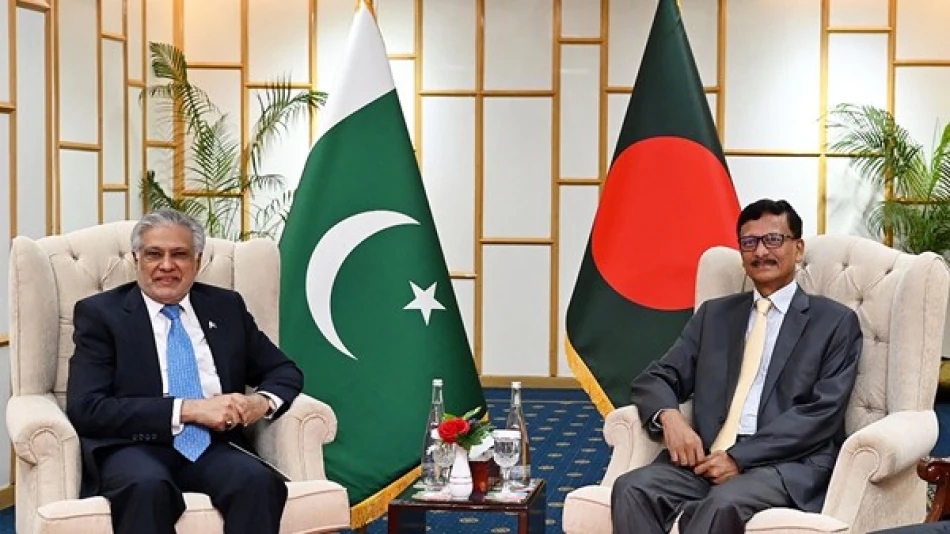
Bangladesh and Pakistan Agree to Strengthen Diplomatic and Economic Ties
Bangladesh and Pakistan Signal Economic Rapprochement After Decades of Diplomatic Distance
Bangladesh and Pakistan have agreed to strengthen bilateral relations and boost trade cooperation, marking the highest-level diplomatic engagement between the two South Asian neighbors since 2012. The move signals a potential shift in regional dynamics as both nations seek new economic partnerships amid changing geopolitical landscapes.
Historic Visit Breaks Diplomatic Ice
Pakistani Foreign Minister Ishaq Dar's visit to Dhaka represents the most senior Pakistani official to visit Bangladesh's capital in over a decade. During Sunday's meetings, Dar emphasized the "enormous potential to benefit both our peoples," highlighting untapped economic opportunities between the two nations.
Bangladesh's Foreign Affairs Adviser Mohammad Touhid Hossain reciprocated the sentiment, telling journalists that both countries had reached consensus on "the need to resolve outstanding issues so they don't become obstacles to our relations."
Economic Pragmatism Over Historical Grievances
The diplomatic breakthrough appears driven by economic necessity rather than sentiment. Both countries signed agreements to deepen trade and economic relations while enhancing cultural exchanges, suggesting a pragmatic approach to bilateral ties.
Strategic Timing and Regional Context
This rapprochement comes as South Asian economies face mounting pressures from global inflation, supply chain disruptions, and the need for regional trade diversification. Pakistan, grappling with economic challenges and seeking new markets, views Bangladesh's growing economy as an attractive partner.
Bangladesh, meanwhile, has been expanding its diplomatic and economic footprint beyond its traditional alignment with India. The country's textile industry and growing manufacturing sector could benefit from Pakistani raw materials and energy cooperation.
Overcoming a Complex Legacy
The two nations share a complicated history, having formed a single country until Bangladesh's independence in 1971 following a brutal war. Post-independence, Bangladesh gravitated toward India, leaving Pakistan-Bangladesh relations largely dormant for decades.
However, both countries now appear willing to compartmentalize historical grievances in favor of economic opportunities. This mirrors successful diplomatic models seen elsewhere, such as Vietnam's engagement with former adversaries or Gulf states' recent normalization efforts.
Market Implications and Future Prospects
For investors and businesses, this diplomatic thaw opens potential opportunities in cross-border trade, particularly in textiles, agriculture, and energy sectors. Bangladesh's $460 billion economy and Pakistan's strategic location could create new supply chain possibilities.
The agreements signed suggest both governments are serious about translating diplomatic goodwill into concrete economic benefits. However, the success of this rapprochement will likely depend on their ability to manage domestic political sensitivities while delivering tangible economic results.
This development also reflects a broader trend in South Asian diplomacy, where economic pragmatism increasingly outweighs historical animosities, potentially reshaping regional trade patterns and geopolitical alignments.
Most Viewed News

 Layla Al Mansoori
Layla Al Mansoori






